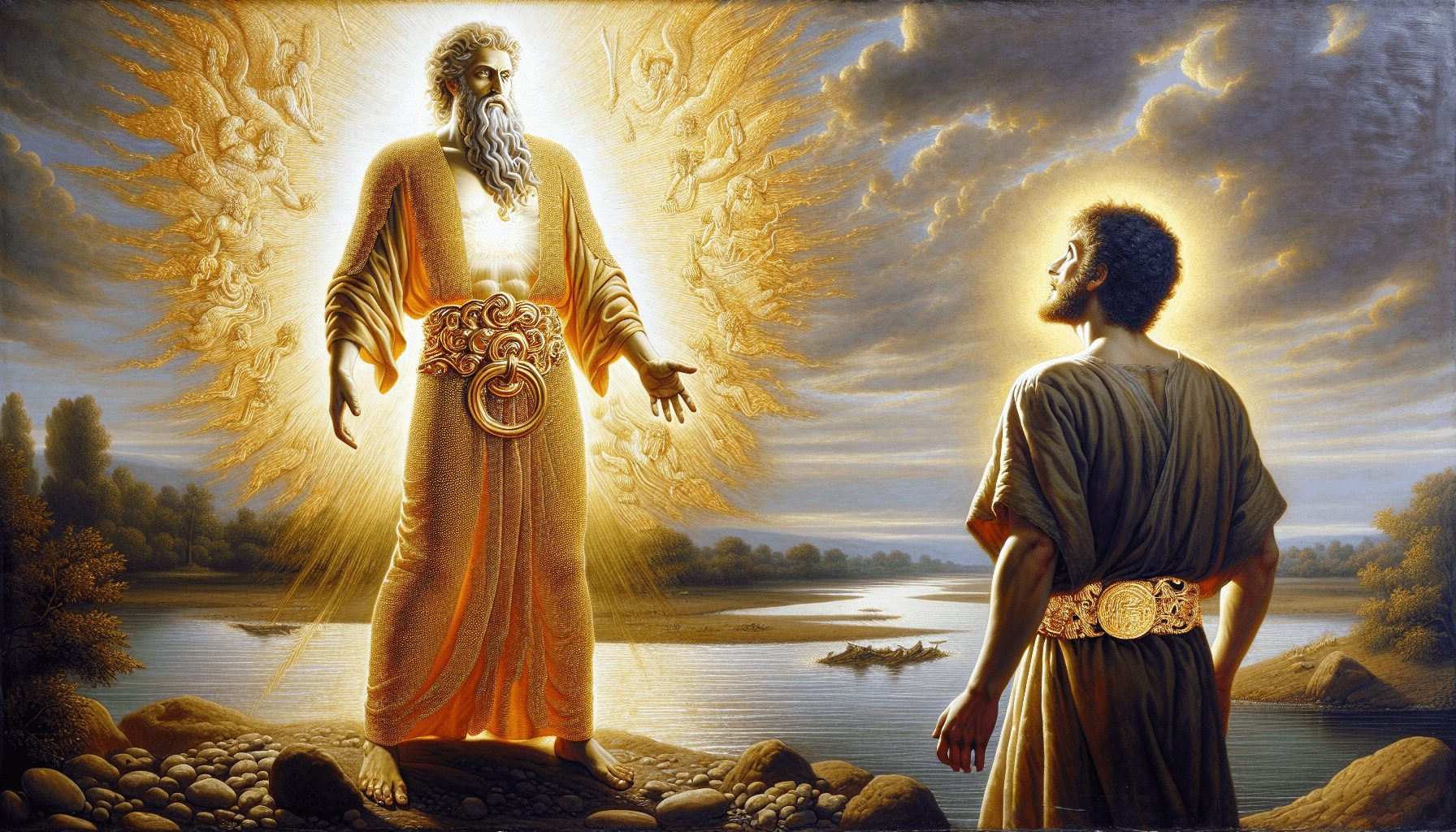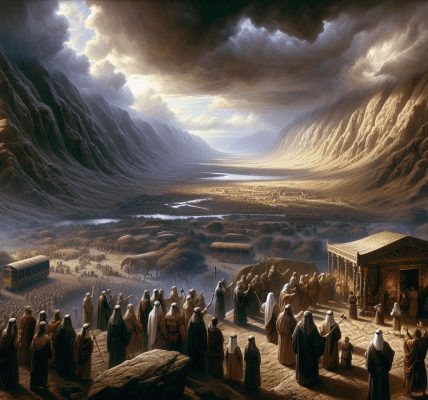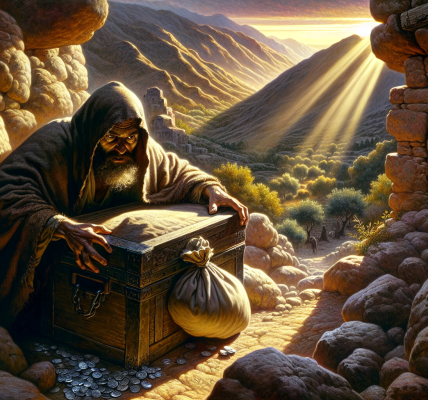**A Journey of Loyalty and Loss: The Story of Naomi and Ruth**
In the days when the judges ruled over Israel, a great famine spread across the land. The fields, once golden with grain, lay barren under a relentless sun. The people of Bethlehem, whose name meant “House of Bread,” found no bread within its borders. Hunger gnawed at their bones, and desperation drove many to seek sustenance elsewhere.
Among those who fled was a man named Elimelech, whose name proclaimed, “My God is King.” Yet in this season of want, it seemed as though God’s provision had vanished. With his wife, Naomi—whose name meant “pleasant” or “sweetness”—and their two sons, Mahlon and Chilion, he crossed the Jordan into the land of Moab. The Moabites, descendants of Lot, were a people often at odds with Israel, but necessity compelled Elimelech’s family to dwell among them.
For a time, the foreign soil sustained them. But then, tragedy struck like a sudden storm. Elimelech, the family’s pillar, perished, leaving Naomi a widow in a strange land. Her heart ached with grief, yet she pressed on for the sake of her sons. Years passed, and Mahlon and Chilion grew to manhood. They took Moabite wives—Orpah and Ruth—women of strength and devotion who brought comfort to Naomi’s weary soul.
But sorrow was not yet finished with her. Like a relentless tide, death returned, claiming both Mahlon and Chilion. The blows left Naomi shattered. Three graves now stood where once her family had thrived. The hands that had once held her husband and cradled her sons now clutched only emptiness. She was a woman stripped of all but her grief, a stranger in a land that was not her own.
Then came word—whispers carried on the wind, tales from travelers speaking of Bethlehem. The famine had lifted. The Lord had visited His people and given them bread once more. Naomi’s heart stirred with a longing for home. Though Moab had been her dwelling, it could never be her true refuge. She resolved to return, to walk once more upon the soil of Judah, even if she walked alone.
Her daughters-in-law, Ruth and Orpah, prepared to journey with her. They had loved Naomi as their own mother, and the bonds forged in shared sorrow were strong. But as they set out on the road, Naomi turned to them, her voice trembling yet firm.
“Go back, each of you to your mother’s house,” she urged. “May the Lord show you kindness, as you have shown kindness to the dead and to me. May He grant you rest, each of you in the house of a new husband.”
Tears filled their eyes as she kissed them. Orpah, after a moment of anguished hesitation, turned back toward Moab, her weeping echoing down the path. But Ruth clung to Naomi, her grip unyielding.
“Look,” Naomi said gently, “your sister-in-law is returning to her people and her gods. Go back with her.”
Then Ruth spoke words that would echo through eternity, her voice steady with conviction:
*”Do not urge me to leave you or to turn back from following you. For wherever you go, I will go, and wherever you stay, I will stay. Your people will be my people, and your God will be my God. Where you die, I will die, and there I will be buried. May the Lord punish me, and ever so severely, if anything but death separates you and me.”*
Naomi saw the fire of devotion in Ruth’s eyes and knew she could not sway her. So together, the two women continued their journey—Naomi, the broken yet returning daughter of Judah, and Ruth, the Moabitess whose loyalty transcended blood and border.
When they arrived in Bethlehem, the town stirred at their coming. The women who had once known Naomi as vibrant and full of life now scarcely recognized her.
“Can this be Naomi?” they whispered.
She lifted her weary face and answered, “Do not call me Naomi. Call me Mara, for the Almighty has made my life bitter. I went away full, but the Lord has brought me back empty. Why call me ‘pleasant’ when the Lord has testified against me, and the Almighty has brought calamity upon me?”
Yet even in her despair, she did not see what God was weaving. For beside her stood Ruth, the foreigner who had chosen the God of Israel, the woman whose love would become the thread of redemption in Naomi’s story.
The barley harvest was beginning, and though Naomi could not yet see it, the Lord had not abandoned her. The fields of Bethlehem, once barren, would soon yield not only grain but hope—and from the most unexpected of places.




